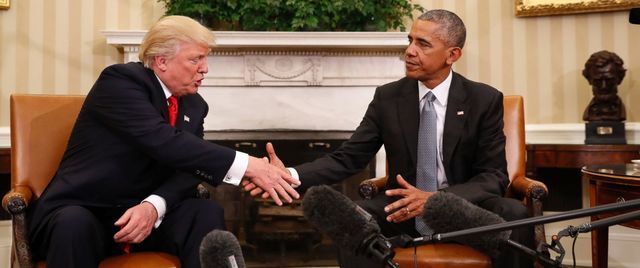I remember learning in an American history class about George Washington, John Adams, and the first peaceful transfer of power in American government. It was a significant moment in world history and one that I haven’t thought about the importance of until recently. Because although plans are in the works for a peaceful transfer between presidents of the United States of America, the reaction I have been watching from Americans has been anything but peaceful. With emotions raging, I have watched individuals and a nation struggle to even consider “praying for the president-elect, for his new administration, and for elected leaders across the nation and the world,” as the First Presidency urged in their statement following the presidential election results.
After witnessing protests, tears, and a variety of other emotions and reactions, President Obama reminded the nation in his follow-up speech, “A lot of our fellow Americans are exultant today. A lot of Americans are less so. But that’s the nature of campaigns. That’s the nature of democracy. It is hard, and sometimes contentious and noisy, and it’s not always inspiring.”
I am increasingly grateful for the privilege and blessing I have to vote, but as President Obama expressed, these past months haven't felt particularly inspiring in the political arena. In these turbulent times, one thought has given me comfort, though—that I belong to an organization that doesn’t need to wade through campaigns and elections, and one whose leader is always known in advance.
Each time the prophet of the Church dies, the line of succession is certain, and the transfer of authority expected. I know at all times who I am sustaining, who I will be sustaining, and who will lead me and The Church of Jesus Christ of Latter-day Saints forward.
And yet, this knowledge wasn’t always so readily available.
Before his death, the Prophet Joseph Smith, sensing his life would soon come to an end, spent an extraordinary amount of time teaching and instructing the Quorum of the Twelve and giving them collectively the same keys, powers, and principles that he had. However, when Joseph and Hyrum were killed, there was still no established method in the eyes of the Church members for knowing who the next prophet would. This meant that confusion arose, and a debate of sorts evolved when various people claimed to be Joseph's successor. The most spoken of circumstance involved Sidney Rigdon, a member of the First Presidency. The incident wasrecorded by President George Q. Cannon in the 1883 edition of the Deseret News:
“After the martyrdom of the Prophet the Twelve soon returned to Nauvoo, and learned of the aspirations of Sidney Rigdon. He had claimed that the Church needed a guardian, and that he was that guardian. He had appointed the day for the guardian to be selected, and of course, was present at the meeting, which was held in the open air. The wind was blowing toward the stand so strongly at the time that an improvised stand was made out of a wagon, which was drawn up at the back part of the congregation, and which he, [William] Marks, and some others occupied. He attempted to speak, but was much embarrassed. He had been the orator of the Church; but, on this occasion, his oratory failed him, and his talk fell very flat. In the meantime, President Young and some of his brethren came and entered the stand. The wind by this time had ceased to blow. After Sidney Rigdon had spoken, President Young arose and addressed the congregation, which faced around to see and hear him, turning their backs towards the wagon occupied by Sidney”
The Juvenile Instructor concluded the story:
“It was the first sound of his voice [Brigham’s] which the people had heard since he had gone east on his mission, and the effect upon them was most wonderful. Who that was present on that occasion can ever forget the impression it made upon them! If Joseph had risen from the dead and again spoken in their hearing, the effect could not have been more startling than it was to many present at that meeting. It was the voice of Joseph himself; and not only was it the voice of Joseph which was heard; but it seemed in the eyes of the people as though it was the very person of Joseph which stood before them. A more wonderful and miraculous event than was wrought that day in the presence of that congregation we never heard of. The Lord gave His people a testimony that left no room for doubt as to who was the man He had chosen to lead them. They both saw and heard with their natural eyes and ears, and then the words which were uttered came, accompanied by the convincing power of God, to their hearts, and they were filled with the Spirit and with great joy. There had been gloom, and, in some hearts probably, doubt and uncertainty; but now it was plain to all that here was the man upon whom the Lord had bestowed the necessary authority to act in their midst in Joseph’s stead.”
Since this remarkable experience, the succession of President of the Church has been clearly outlined and followed, as I remember witnessing when President Gordon B. Hinckley passed away. And though I still have a right and an obligation to seek inspiration for myself and choose whether or not to support and sustain that successor, I am grateful for the peaceful, orderly way in which our Church government is organized. May we all find courage in our hearts to choose faith over fear, and to support those who lead us, using our testimony as our guide, no matter what comes our way.

